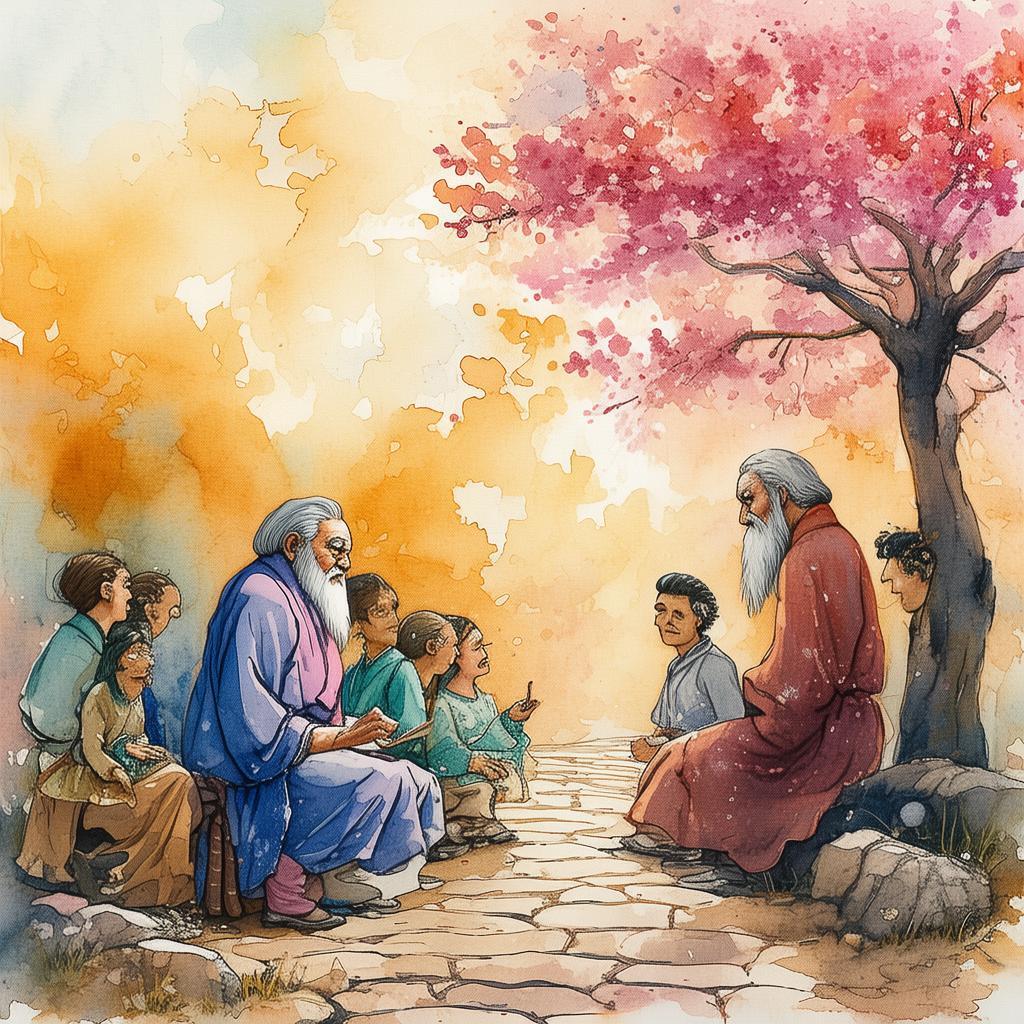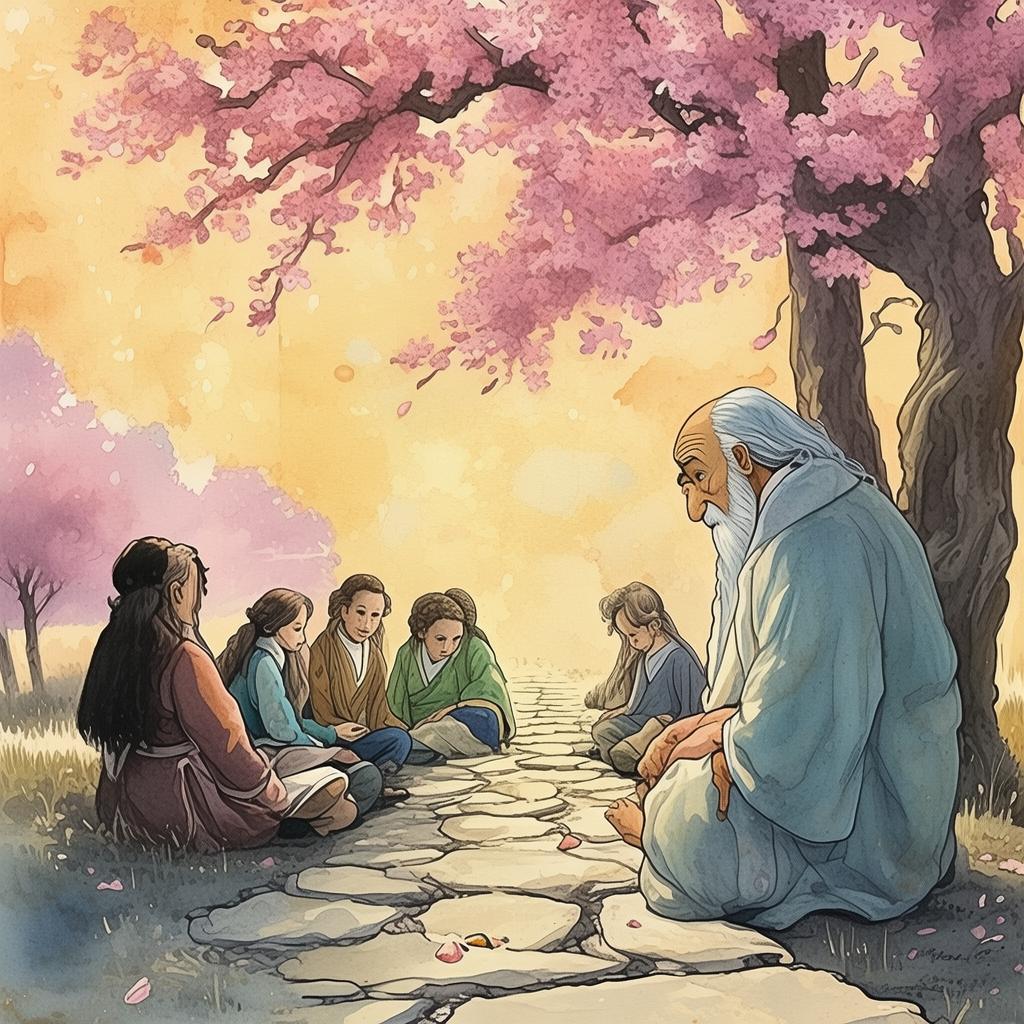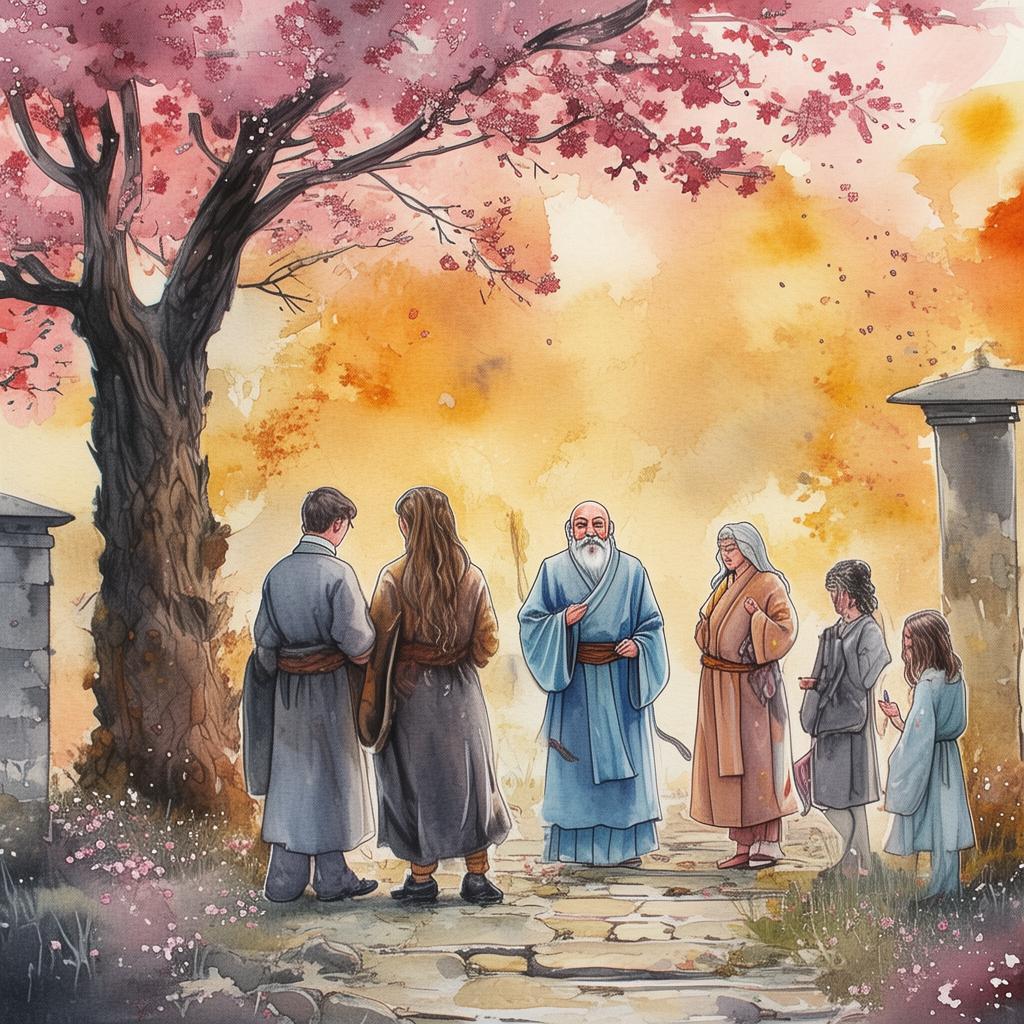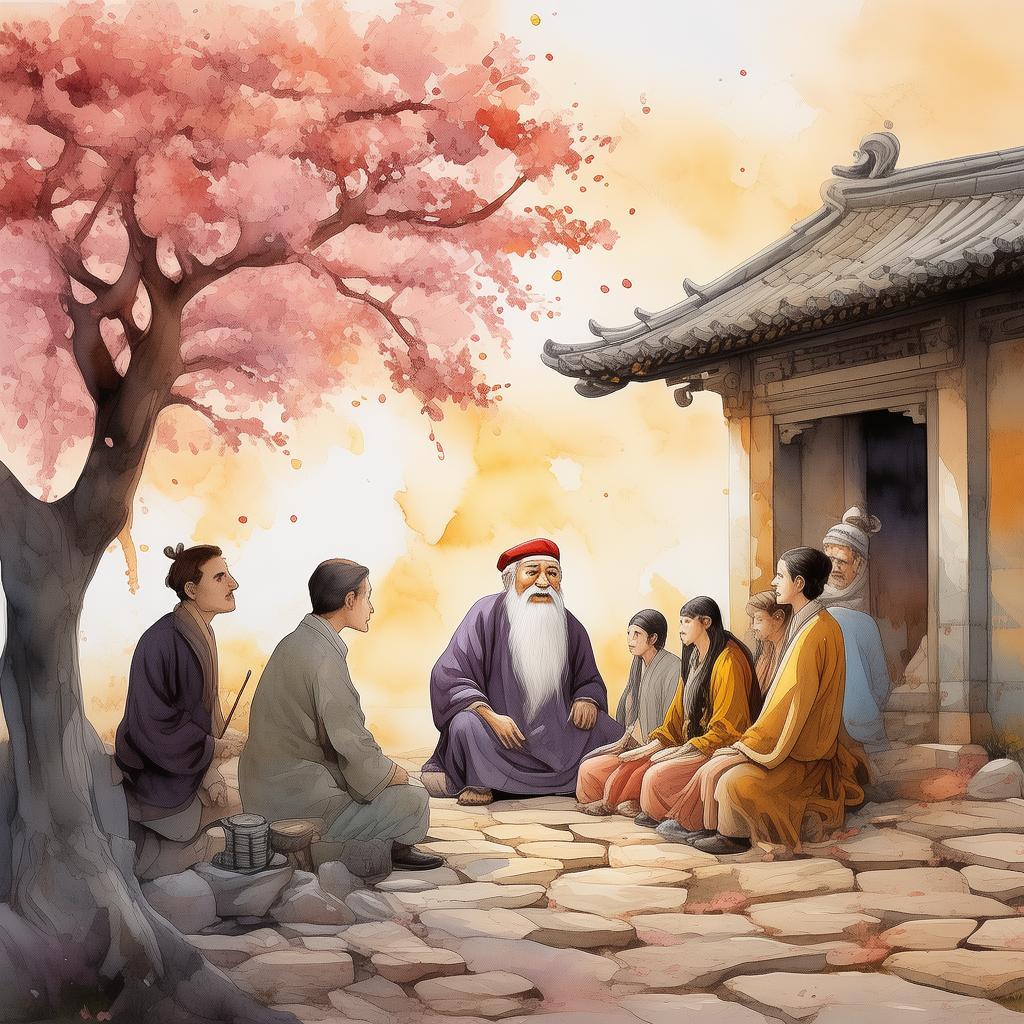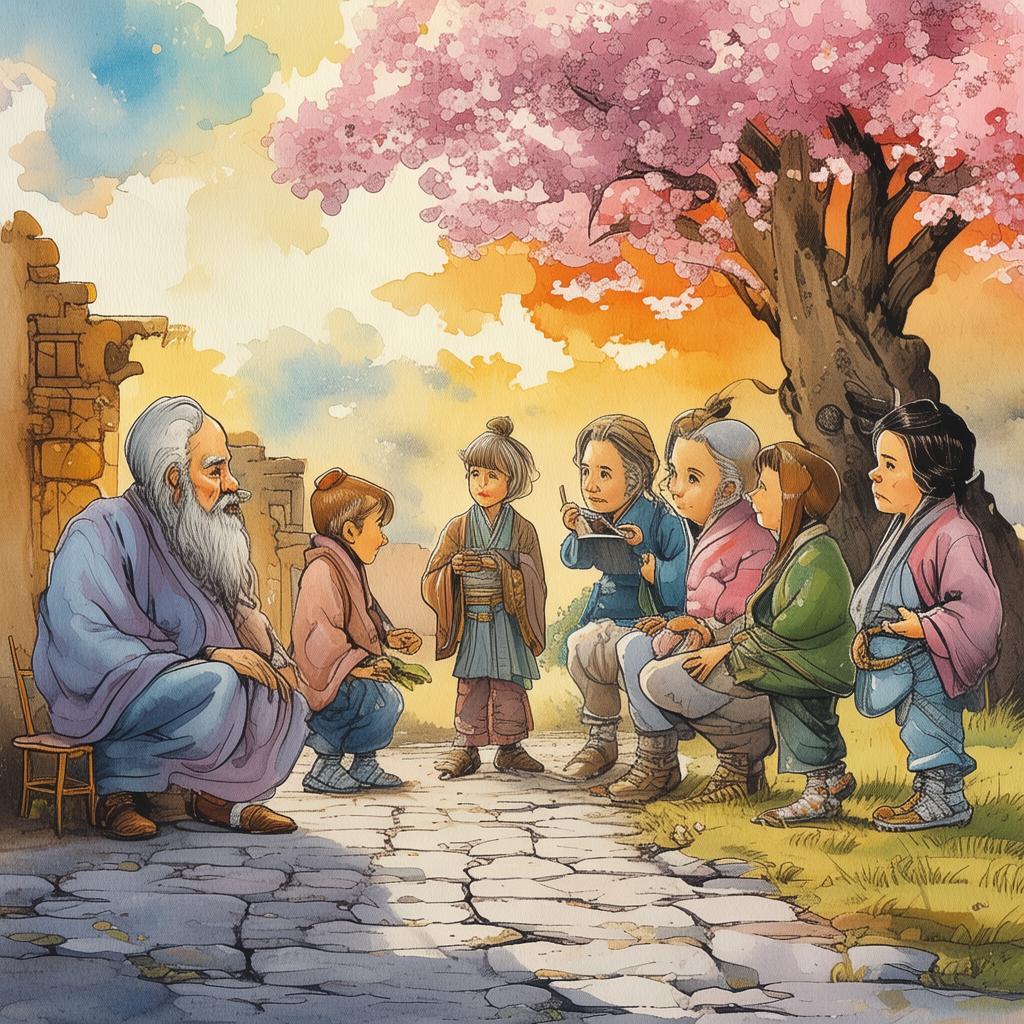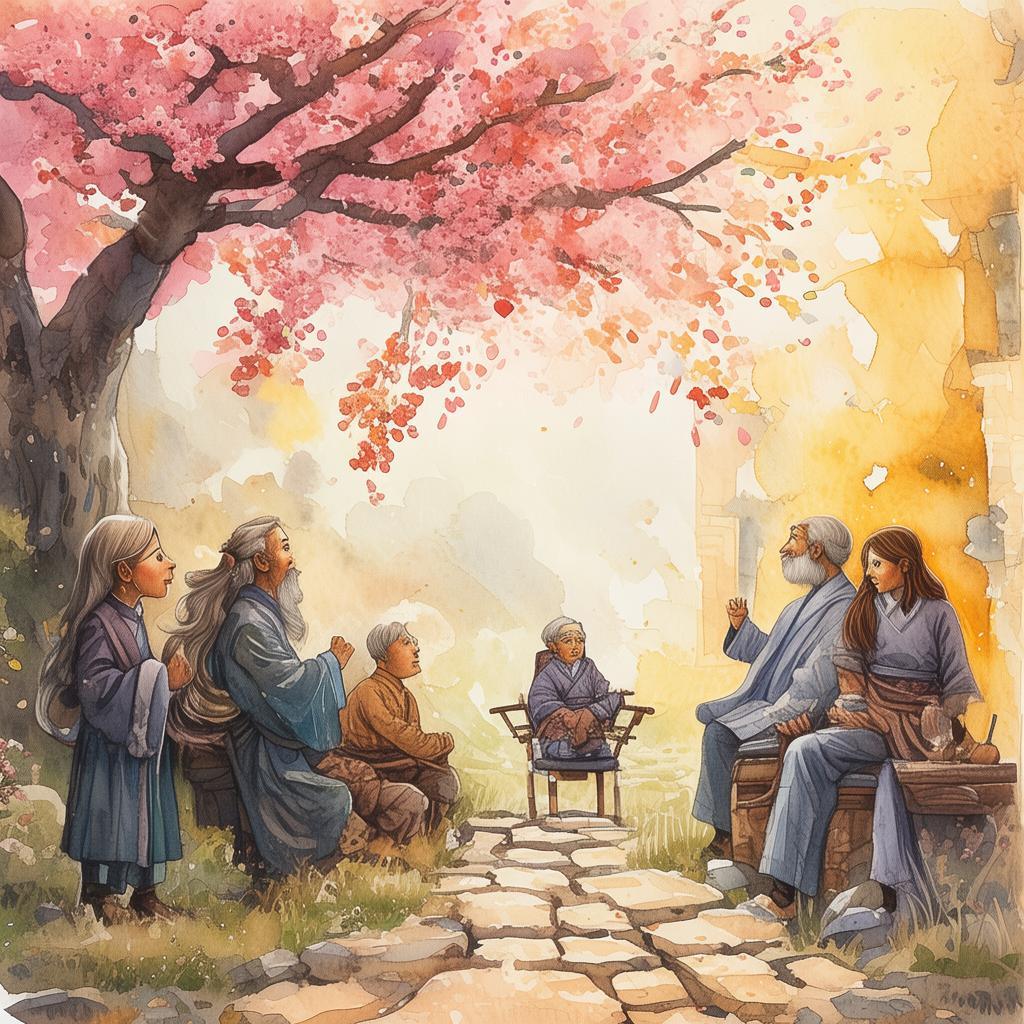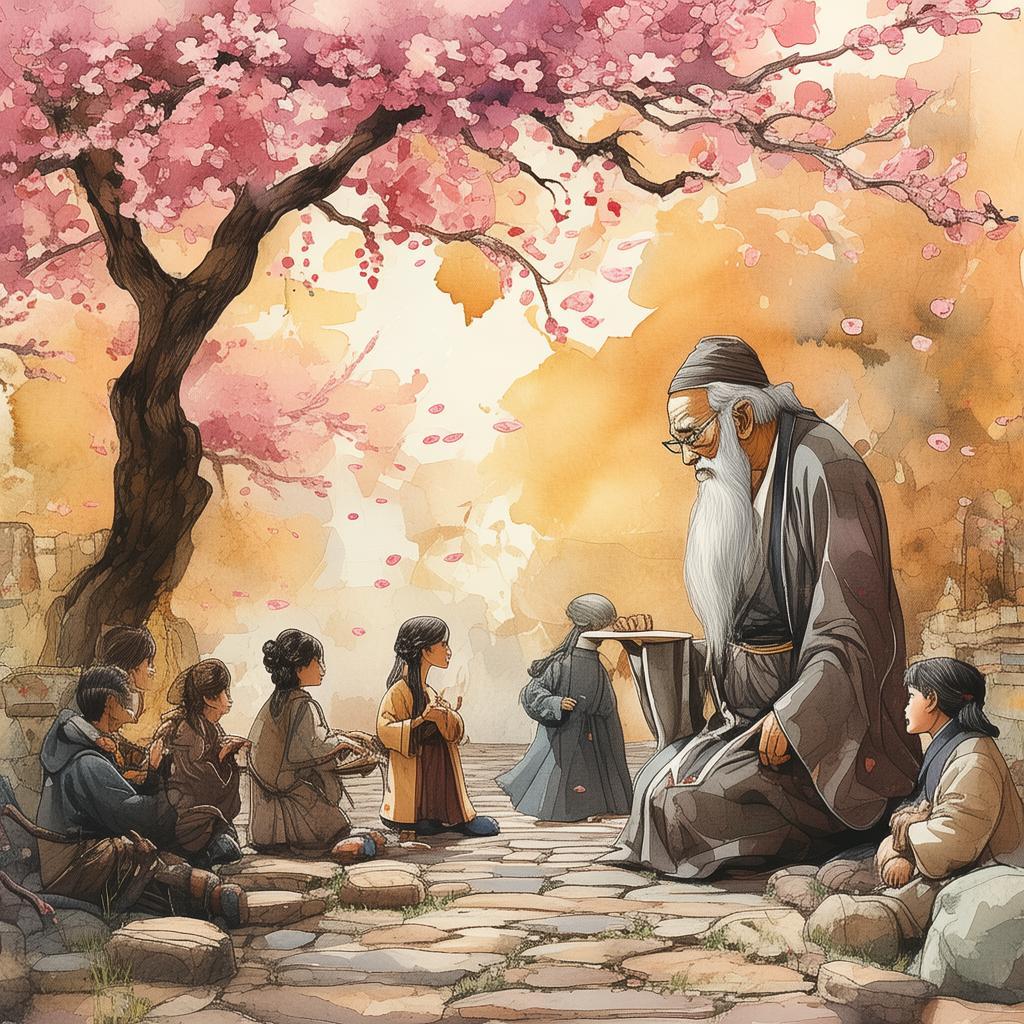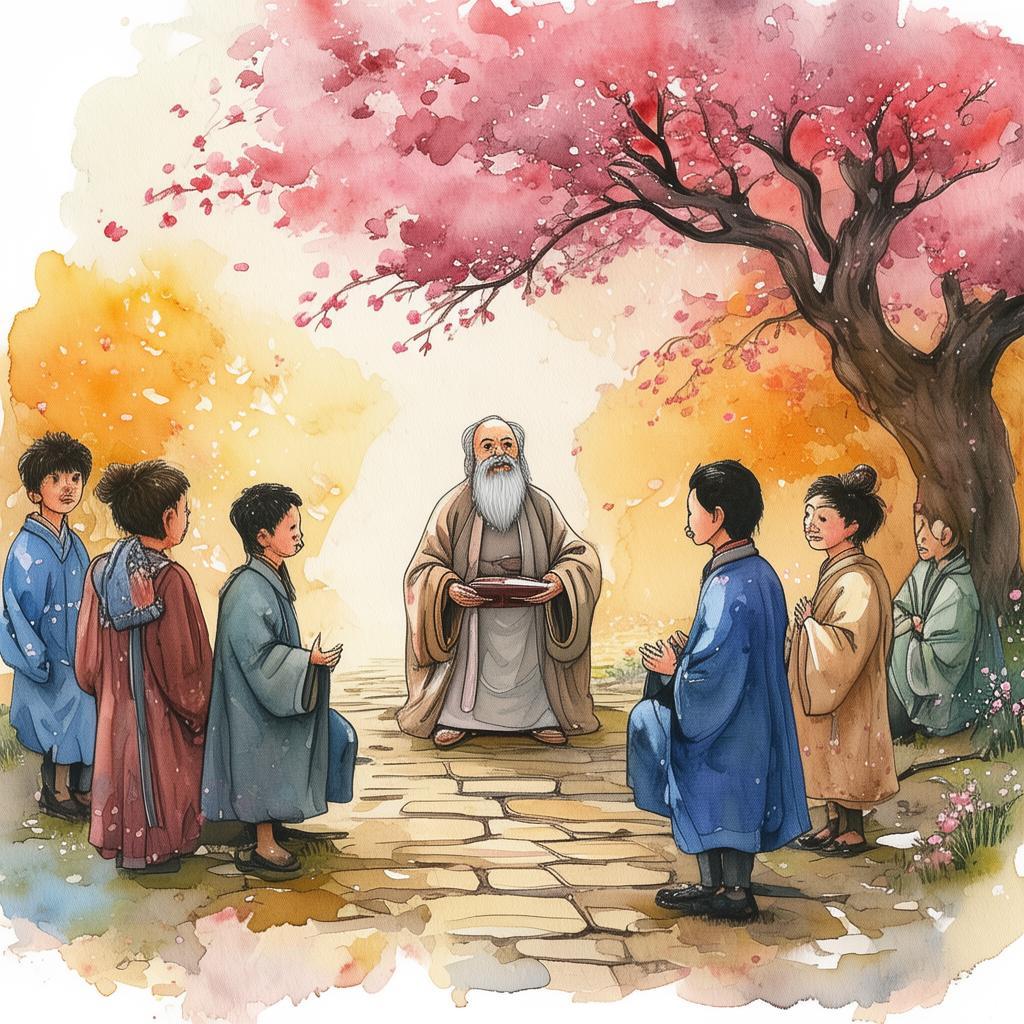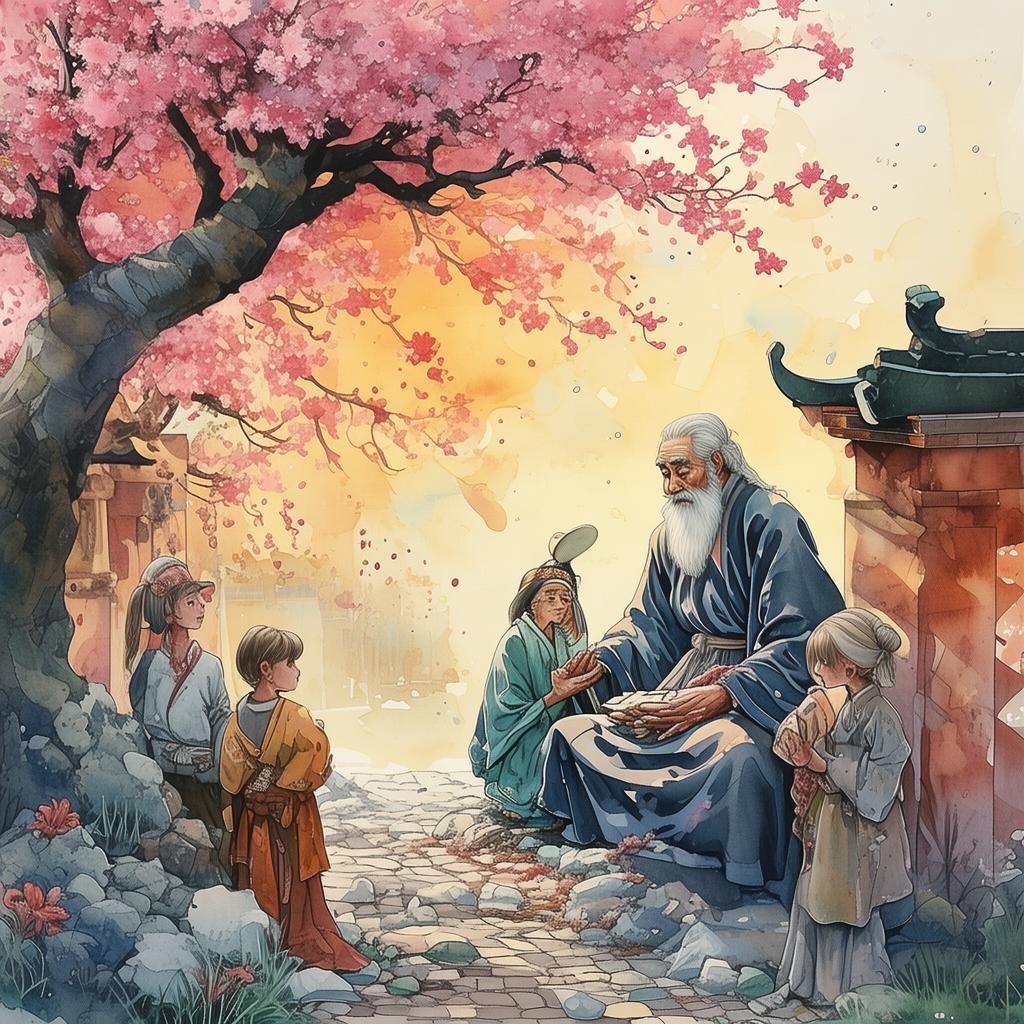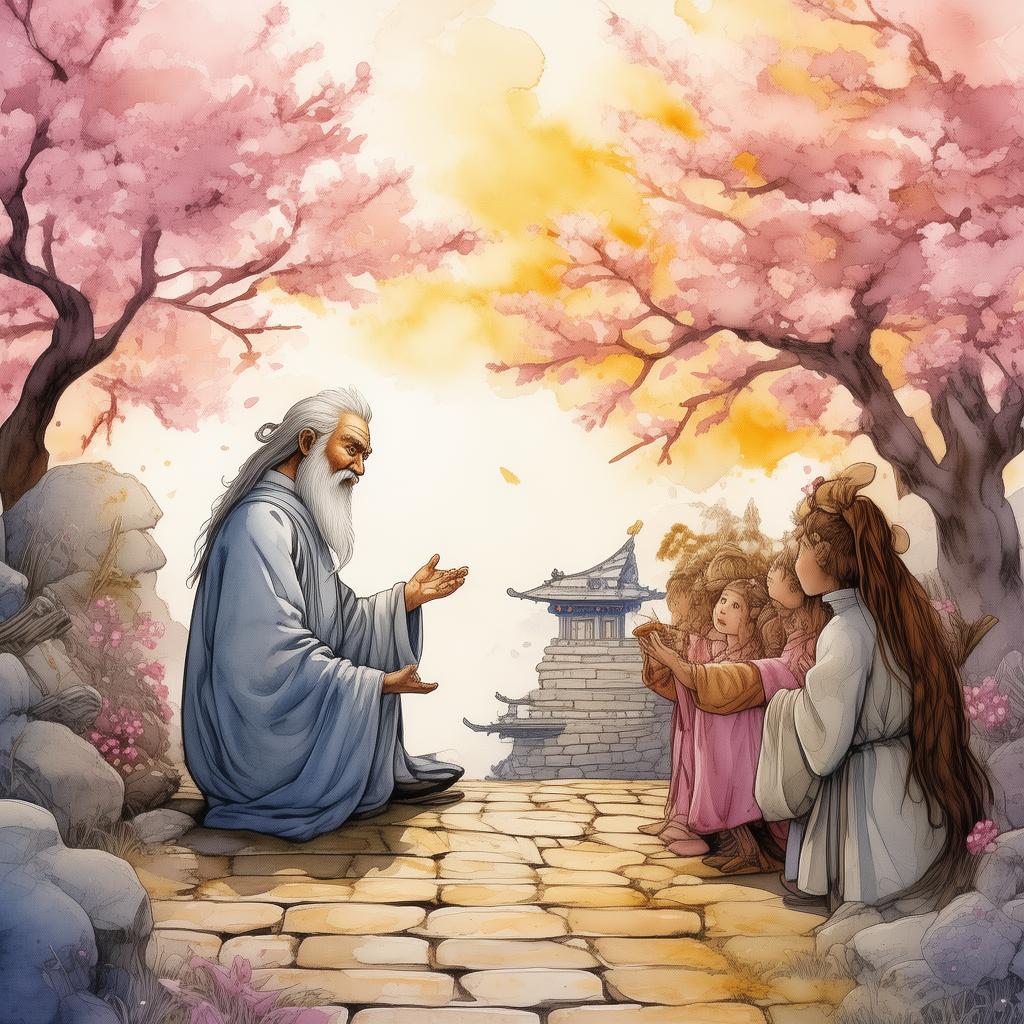The Melody of Redemption: A Symphony of White and Black
In the heart of a bustling city, where the sounds of life merged with the melodies of the streets, lived a young composer named Liang. His name was whispered in hushed tones, for he had the gift of turning the simplest of sounds into the most profound symphonies. His latest creation, "The White-Day Symphony," was set to change the world of music forever.
Liang was a man of contradictions. He was a lover of light and harmony, yet he was also haunted by his past. Years ago, he had witnessed a tragedy that had torn his family apart. His sister, a violinist, had been caught in the crossfire of a gang war and had lost her life. The grief had turned him into a recluse, a man who believed that music was a curse, not a gift.
One fateful evening, as Liang was lost in the depths of his sorrow, a mysterious figure approached him. The figure introduced himself as Zhe, a man who claimed to understand the power of music and the pain it could heal. Zhe offered Liang a chance to compose a new symphony, one that would not only captivate the hearts of listeners but also save his own soul.
Intrigued and desperate for redemption, Liang accepted the challenge. He began to compose "The White-Day Symphony," a piece that would blend the light of his sister's memory with the darkness that clung to him. The symphony was to be performed at the most prestigious concert hall in the city, a place where Liang had never dared to set foot.
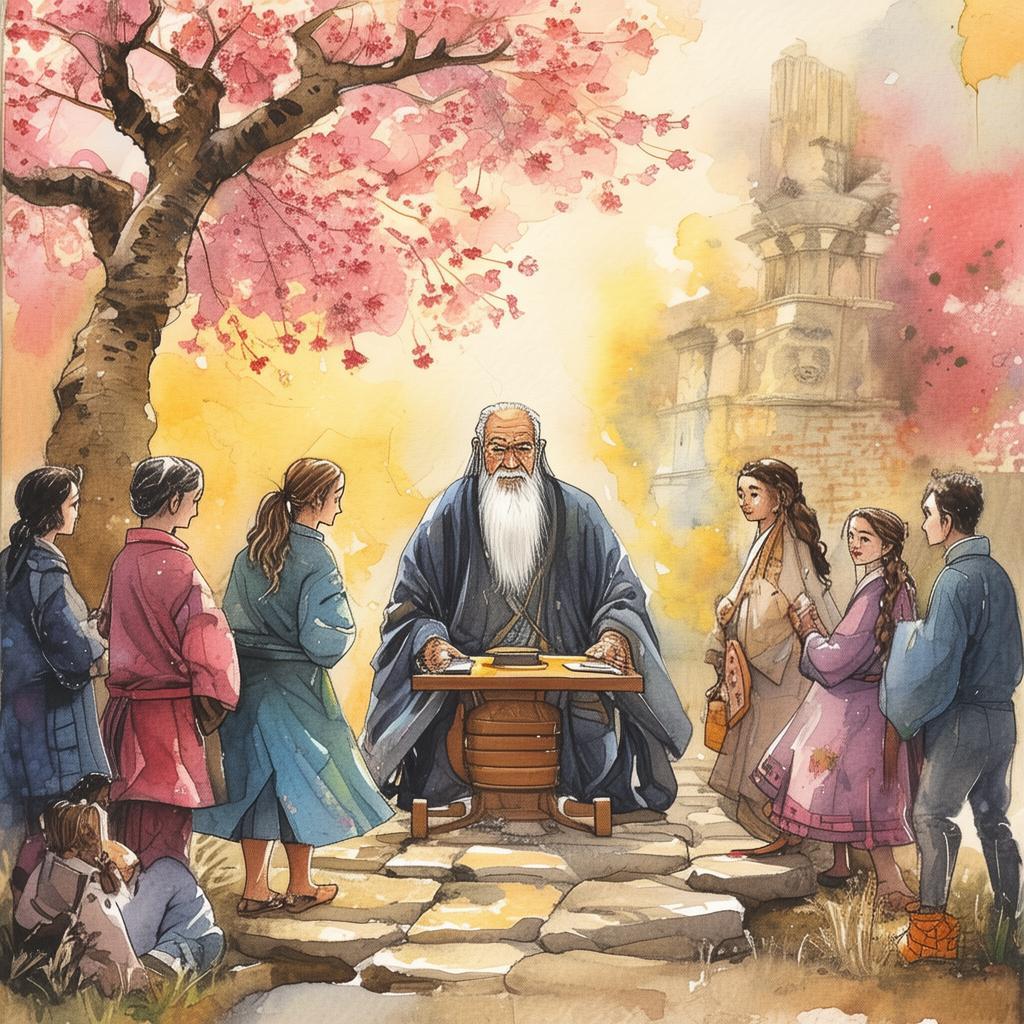
As the day of the performance approached, Liang found himself in the middle of a web of conflict. The gang that had taken his sister's life had learned of his symphony and saw it as a threat. They demanded that Liang withdraw from the performance, or they would destroy everything he held dear.
The night before the concert, Liang received a chilling message: "Your symphony will be played, but at a price." Desperate, Liang sought help from Zhe, who revealed that he was a member of a secret society that had been protecting him and his music. Zhe proposed a plan: to use the symphony's power to confront the gang and bring them to justice.
The day of the concert arrived, and the hall was filled with anticipation. As Liang took the stage, he played the first few notes of his symphony, a haunting melody that seemed to echo the sorrow of his past. The audience was mesmerized, and as the symphony progressed, the darkness that had consumed Liang began to lift.
Midway through the performance, the gang made their move. They stormed the concert hall, demanding that Liang cease the performance. Liang, with the help of Zhe and the symphony's power, managed to outmaneuver them, using the music to calm the gang members and reveal their true intentions.
The climax of the story unfolded as Liang played the final movement of his symphony, a powerful and uplifting piece that symbolized his journey from darkness to light. The audience was on the edge of their seats, their emotions riding the waves of the music.
As the final note resonated through the hall, the gang members were overwhelmed by the symphony's beauty and the power of Liang's message. They broke down in tears, realizing the error of their ways. The concert ended with a standing ovation, and Liang was hailed as a hero.
In the aftermath, Liang realized that music was not a curse but a gift that could heal and bring people together. He continued to compose, his heart now filled with gratitude and hope. The White-Day Symphony became a legend, a tale of redemption and the power of music to overcome darkness.
The story of Liang and his symphony spread far and wide, inspiring people to embrace the light within themselves and to use their talents to make the world a better place. And so, the legend of the White-Day Symphony lived on, a testament to the enduring power of music and the human spirit.
✨ Original Statement ✨
All articles published on this website (including but not limited to text, images, videos, and other content) are original or authorized for reposting and are protected by relevant laws. Without the explicit written permission of this website, no individual or organization may copy, modify, repost, or use the content for commercial purposes.
If you need to quote or cooperate, please contact this site for authorization. We reserve the right to pursue legal responsibility for any unauthorized use.
Hereby declared.
